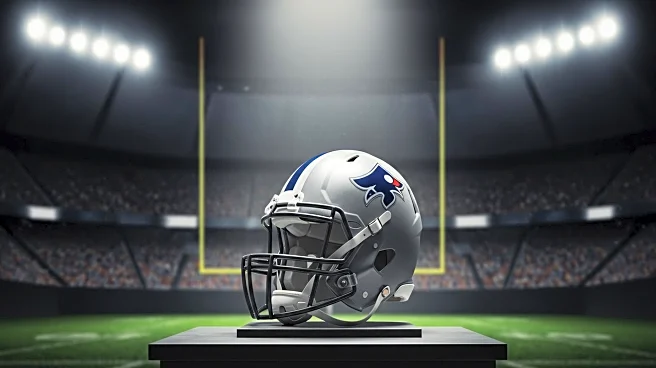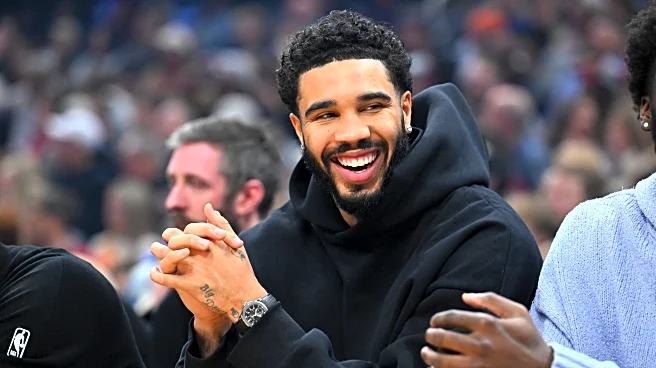What's Happening?
Kansas City Chiefs wide receiver Rashee Rice is set to play the first four games of the NFL season despite facing a disciplinary hearing scheduled for September 30. Rice was involved in a high-speed multi-car crash in Dallas in March 2024, resulting in multiple injuries. He pleaded guilty to two third-degree felony charges and received a 30-day prison sentence, which can be served during a five-year probation period. The case will be dismissed if he completes the probation. Rice, a 2023 second-round pick, is the Chiefs' top receiver, and his presence is crucial for quarterback Patrick Mahomes, especially in the upcoming Week 3 game against the New York Giants.
Why It's Important?
Rashee Rice's ability to play the initial games of the season is significant for the Kansas City Chiefs, as he is a key component of their offensive strategy. His involvement in the games provides stability and strength to the team's receiving corps, which includes notable players like Travis Kelce and Hollywood Brown. The delay in his suspension allows the Chiefs to maintain their competitive edge early in the season. However, the looming suspension could impact the team's performance later, as they will need to adjust their strategy without their leading receiver. This situation highlights the NFL's disciplinary process and its impact on team dynamics and player availability.
What's Next?
Following the disciplinary hearing on September 30, Rashee Rice may face a multi-game suspension for violating the NFL's personal conduct policy. The Chiefs will need to prepare for his absence and potentially adjust their offensive lineup. Rice has expressed his commitment to improving and learning from past mistakes, indicating his focus on returning to the field as soon as possible. The outcome of the hearing will determine the length of his suspension and influence the Chiefs' strategy for the remainder of the season.
Beyond the Headlines
Rice's situation underscores the broader issue of athlete conduct and the consequences of legal troubles on professional careers. It raises questions about the balance between personal accountability and professional responsibilities. The NFL's handling of such cases can affect public perception of the league's commitment to enforcing conduct policies and maintaining player integrity.










